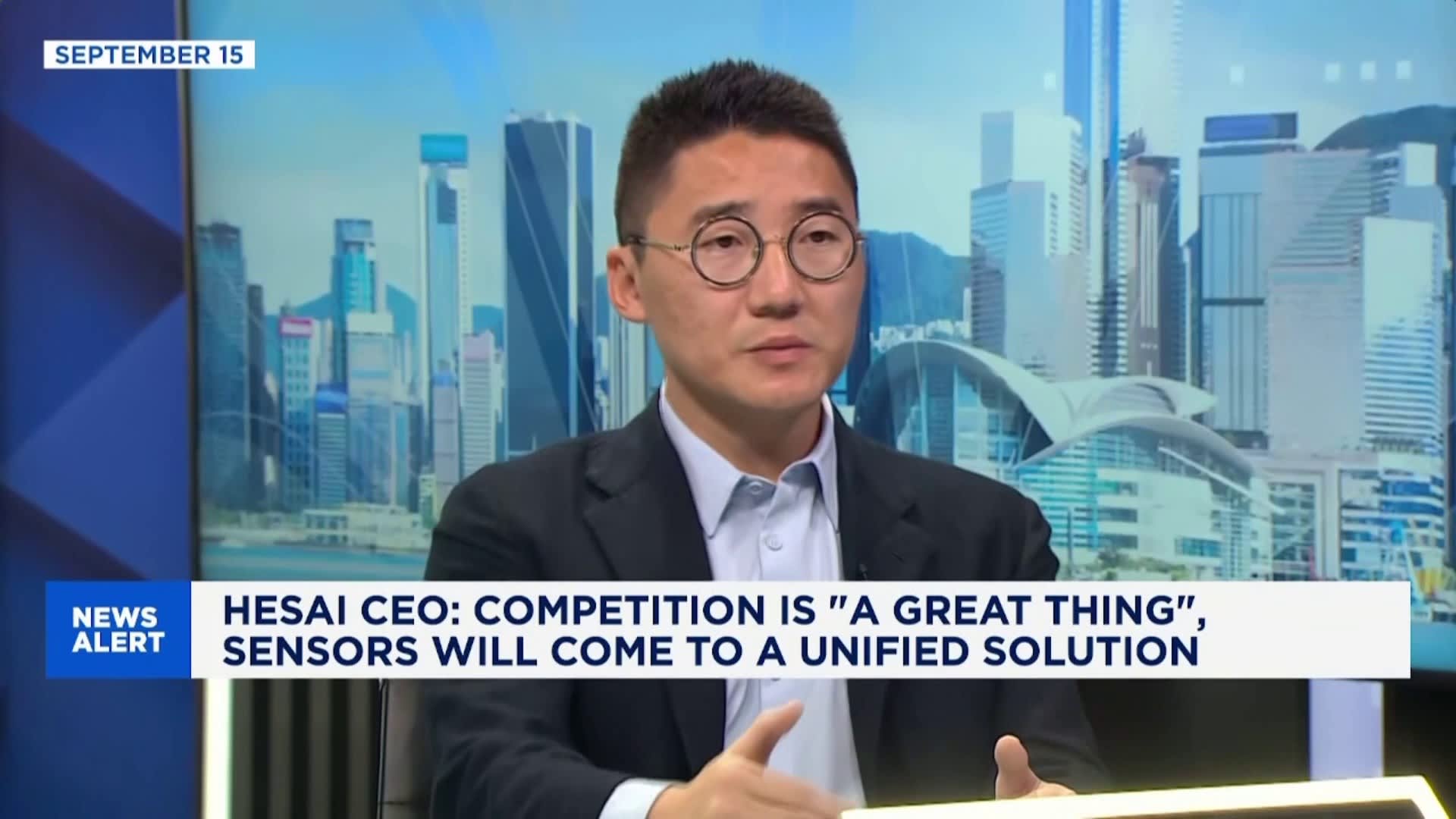Health
Hesai CEO Advocates for Price Competition Over Quality Concerns

The CEO of **Hesai Technology**, **Jun Li**, has expressed his views on the current competitive landscape within the LiDAR industry, emphasizing that companies should prioritize price competition rather than compromising on quality. This statement comes as the global market faces increasing pressure, particularly within the automotive sector, where LiDAR technology is essential for the development of autonomous vehicles.
During a recent industry conference in **China**, Li highlighted that the intense competition among LiDAR manufacturers has shifted the focus to pricing strategies. Li stated, “The over-competition we are witnessing should revolve around pricing, as maintaining high-quality standards is crucial for the industry’s long-term growth.” His comments reflect an industry-wide concern that some companies may be tempted to cut corners on quality to reduce costs.
Li’s remarks are significant as they highlight a critical tension within the industry. With numerous players entering the LiDAR market, the pressure to reduce prices is mounting. This has raised questions about how companies can sustain innovation while remaining competitive in pricing.
Quality as a Long-Term Strategy
Li stressed the importance of quality in the context of technological advancements. He pointed out that while lower prices might attract customers in the short term, long-term success will depend on the ability to deliver reliable and high-performance products. “Investing in quality not only builds trust with clients but also strengthens the overall market,” he added.
Hesai Technology, known for its cutting-edge LiDAR solutions, has positioned itself as a leader in the sector. The company has made significant investments in research and development to ensure that its products meet the stringent demands of the automotive industry. This commitment to quality has helped the company secure contracts with major automotive manufacturers.
As the industry evolves, Li anticipates that companies focusing solely on price may struggle to retain their market share. He believes that those who prioritize quality will ultimately prevail, as consumers and manufacturers alike seek reliable technology that enhances safety and performance.
The Future of LiDAR and Automotive Technology
Looking ahead, Li underscored the potential for LiDAR technology to transform the automotive landscape. With the increasing adoption of autonomous vehicles, the demand for high-quality LiDAR systems is expected to grow. According to industry forecasts, the LiDAR market could reach **$1.5 billion** by **2027**, driven by the expanding use of such technologies in various applications, including transportation and logistics.
Li’s perspective is crucial in understanding the dynamics of the LiDAR market. As competition intensifies, companies will need to find a balance between cost-efficiency and quality to remain competitive. The discussion around pricing strategies versus quality standards will likely shape the future of the industry.
Ultimately, Jun Li’s call for a focus on quality amidst the pressures of price competition serves as a reminder of the critical factors that drive innovation and sustainability in technology sectors. As companies navigate these challenges, the emphasis on delivering high-quality products will be essential for long-term success in the global market.
-

 Lifestyle3 months ago
Lifestyle3 months agoLibraries Challenge Rising E-Book Costs Amid Growing Demand
-

 Sports3 months ago
Sports3 months agoTyreek Hill Responds to Tua Tagovailoa’s Comments on Team Dynamics
-

 Sports3 months ago
Sports3 months agoLiverpool Secures Agreement to Sign Young Striker Will Wright
-

 Lifestyle3 months ago
Lifestyle3 months agoSave Your Split Tomatoes: Expert Tips for Gardeners
-

 Lifestyle3 months ago
Lifestyle3 months agoPrincess Beatrice’s Daughter Athena Joins Siblings at London Parade
-

 World3 months ago
World3 months agoWinter Storms Lash New South Wales with Snow, Flood Risks
-

 Science3 months ago
Science3 months agoTrump Administration Moves to Repeal Key Climate Regulation
-

 Science2 months ago
Science2 months agoSan Francisco Hosts Unique Contest to Identify “Performative Males”
-

 Business3 months ago
Business3 months agoSoFi Technologies Shares Slip 2% Following Insider Stock Sale
-

 Science3 months ago
Science3 months agoNew Tool Reveals Link Between Horse Coat Condition and Parasites
-

 Sports3 months ago
Sports3 months agoElon Musk Sculpture Travels From Utah to Yosemite National Park
-

 Science3 months ago
Science3 months agoNew Study Confirms Humans Transported Stonehenge Bluestones









